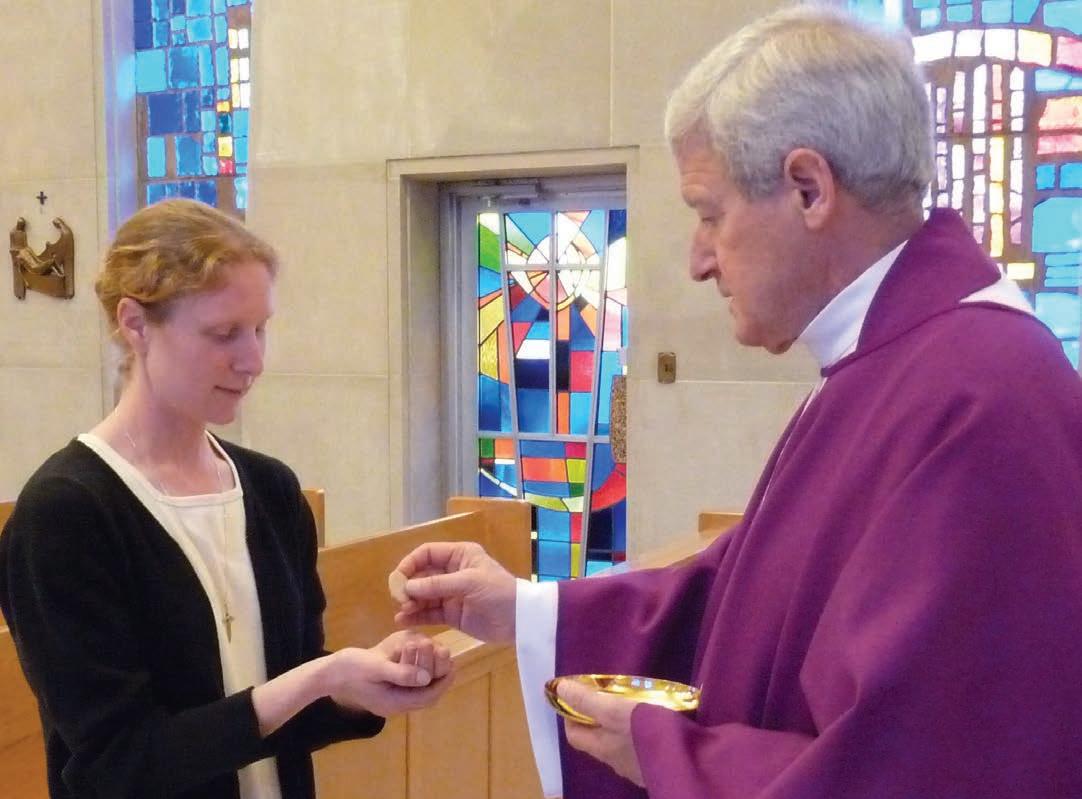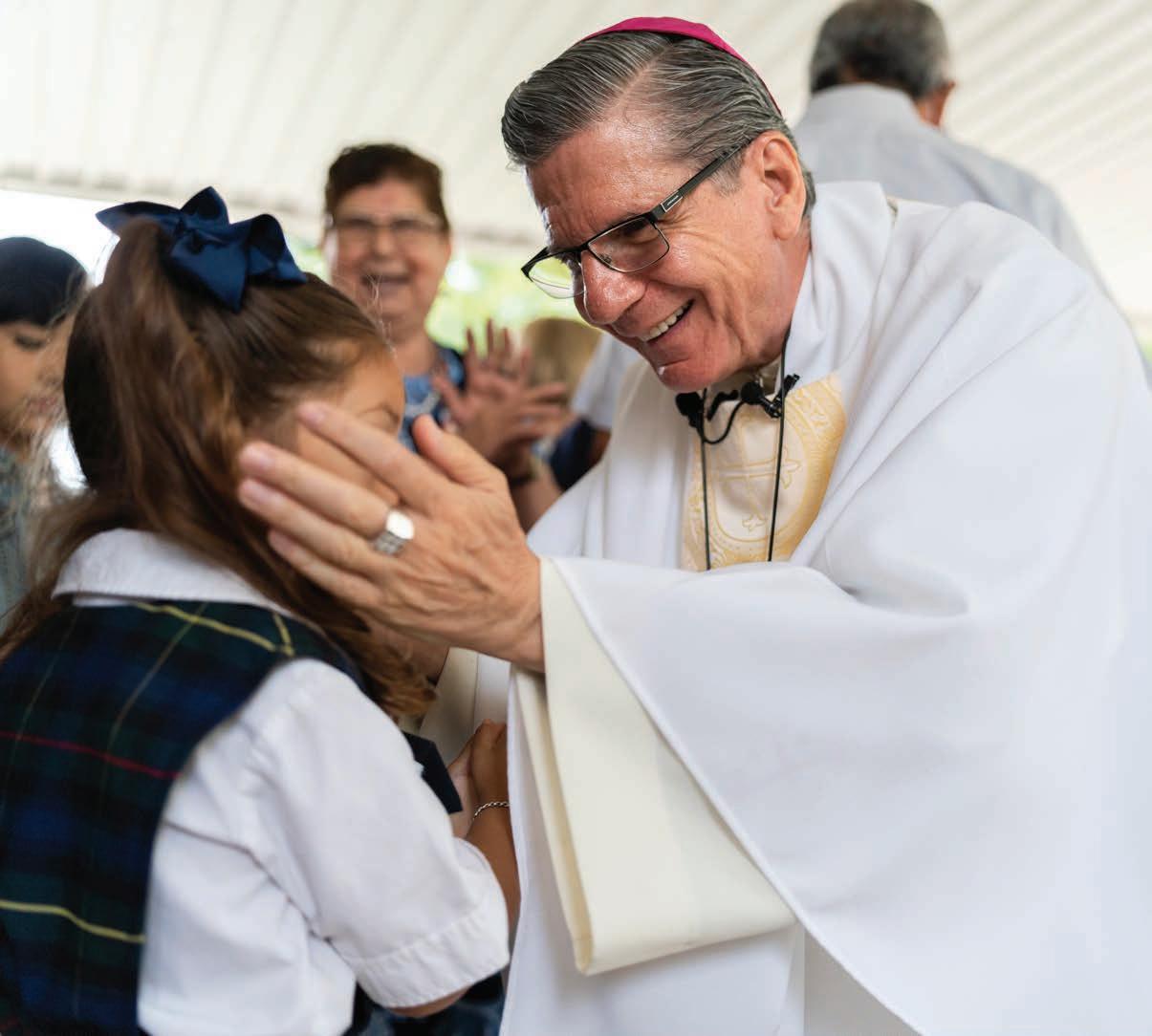
2 minute read
What Catholics believe about the Eucharist
by aliCe CaMille
I am the living bread that came down from heaven; whoever eats this bread will live forever; and the bread that I will give is my flesh for the life of the world.
OUR PARTICIPATION in the supper of the Eucharist transforms us into the Body of Christ for the world right now. That’s some statement!
The centrality of Eucharist to Catholic life can’t be overemphasized. It’s the “source and summit” of Christian life (Lumen
THE CATHOLIC belief in the Real Presence means Jesus Christ is present in the Eucharist in his Body and Blood, humanity and divinity, under the forms of bread and wine.
Gentium, no.11). This means our life as disciples begins at the Table of the Lord and always returns here.

Eucharist means “thanksgiving.” Eucharist refers to the ritual of the Mass as a whole, or it can be shorthand for the Body and Blood of Christ we share in Communion. The Eucharist reminds us that what brings us together is gratitude. What are we grateful for? For many things personal and communal, but in the
Mass we’re especially focused on the mystery of Christ who has died, is risen, and will come again in glory. This past, present, and future reality of Christ includes us in its magnificent unfolding. We’re not bystanders at a miracle, but participants in a never-ending feast.

Like many of our Protestant sisters and brothers, Catholics celebrate

Eucharist as a memorial of the Last Supper Jesus shared with his friends. However, we also believe this sacrament renews the sacrifice Jesus makes of his life expressed in his words:
“Take this, all of you, and eat of it, for this is my Body… Take this, all of you, and drink from it, for this is the chalice of my Blood….” What was, now is. When the Early Church gathered for what they called the “breaking of the bread” or the “Supper of the Lord,” they did more than eat and drink. They also listened to instruction from local leaders, prayed, supported each other, shared financial resources with those in need, and received teachings from the apostles—whether in person, delivered by an eyewitness, or by means of a letter passed among the communities. Those gathered also served in a variety of ministries as the Spirit inspired them to do. We preserve these elements of Eucharist in the prayers, scripture readings, homily, and collection, as well as opportunities for faith formation and service practiced in various ways by each parish community.
More recently, church thinkers also direct our attention to the
“dangerous memory” contained in our Eucharist. Christ’s Passion points to the reality of unjust suffering, the need for its redress, and the hope of transcendence from a world marred by sin and death. Our Eucharist reminds us that the call to justice sounds every time we “proclaim the death of the Lord, until he comes.”

Real means real
A question some wonder about is what Catholics mean when they talk about the Real Presence of Christ in the Eucharist. The clearest answer is the official one: Jesus Christ is present in the Eucharist in his Body and Blood, humanity and divinity, under the forms of bread and wine. The church teaches that this presence is
Code










